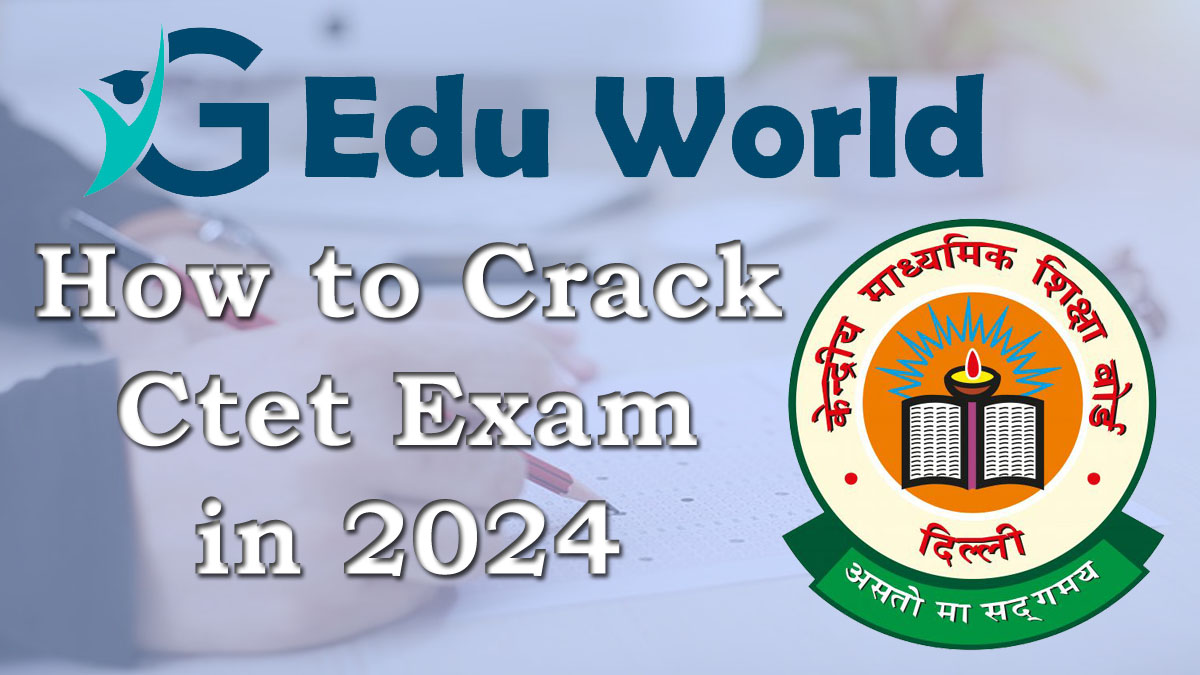

CTET Exam Strategy
The Central Teacher Eligibility Test (CTET) is a crucial step for aspiring teachers in India. Clearing this exam is a prerequisite for securing teaching positions in government schools. Given its significance, a well-planned strategy is essential for success. Here’s a detailed guide to help you prepare effectively.
CTET Exam Strategy
Understanding the Exam Structure
The CTET consists of two papers:
Paper I: For those intending to teach classes I to V.
Paper II: For those intending to teach classes VI to VIII.
Both papers contain multiple-choice questions (MCQs) and are divided into sections:
Paper I:
Child Development and Pedagogy
Language I
Language II
Mathematics
Environmental Studies
Paper II:
Child Development and Pedagogy
Language I
Language II
Mathematics and Science (for Mathematics and Science teachers)
Social Studies/Social Science (for Social Studies/Social Science teachers)
Each section carries equal weight, and there is no negative marking.
Developing a Study Plan:
Understand the Syllabus: Start by thoroughly understanding the syllabus for both papers. Knowing what topics are covered is crucial for targeted preparation.
Create a Timetable: Allocate specific time slots for each subject daily. Ensure a balanced approach, giving extra time to subjects you find challenging.
Set Realistic Goals: Break down the syllabus into manageable parts and set weekly or bi-weekly goals. This will help keep your preparation on track.
Subject-Wise Preparation Tips
Child Development and Pedagogy
Core Focus: Understand child psychology and development stages. Familiarize yourself with educational theories and their practical applications.
Key Topics: Learning and Pedagogy, Development of a Child, Inclusive Education, Understanding Children with Special Needs.
Resources: NCERT books on child development, educational psychology books by authors like Jean Piaget and Lev Vygotsky.
Table of Contents
Language I and II
Core Focus: Enhance your proficiency in the chosen languages. Focus on grammar, comprehension, and language pedagogy.
Key Topics: Reading comprehension, grammar, verbal ability, teaching methodologies.
Resources: Standard grammar books, language-specific pedagogy materials, practice papers.
Mathematics
Core Focus: Develop conceptual clarity and problem-solving skills.
Key Topics: Numbers, Geometry, Algebra, Measurement, Data Handling.
Resources: NCERT textbooks, R.S. Aggarwal’s Quantitative Aptitude, previous years’ question papers.
Environmental Studies
Core Focus: Build a strong understanding of environmental science concepts.
Key Topics: Family and Friends, Food, Shelter, Water, Travel, Things We Make and Do.
Resources: NCERT EVS textbooks, reference books on environmental science, practice papers.
Social Studies (For Paper II)
Core Focus: Cover the basics of History, Geography, Political Science, and Economics.
Key Topics: Ancient, Medieval, and Modern History; Indian Geography; Civics; Basic Economics.
Resources: NCERT textbooks, Lucent’s General Knowledge, practice papers.
Practice and Revision
Regular Practice: Solve as many practice questions and previous years’ papers as possible. This will help you get accustomed to the exam pattern and improve your speed and accuracy.
Mock Tests: Take full-length mock tests under exam-like conditions. Analyze your performance to identify strengths and weaknesses.
Revision: Regular revision is essential. Make short notes or flashcards for quick revision of important concepts and formulas.
Time Management
During Preparation: Allocate more time to subjects you find difficult. Stick to your timetable but be flexible enough to make adjustments as needed.
During the Exam: Read the questions carefully and manage your time effectively. Don’t spend too much time on any one question. Move on and come back to it if time permits.
Additional Tips
Stay Updated: Keep yourself updated with the latest educational policies and reforms. This is particularly important for the pedagogy section.
Healthy Lifestyle: Maintain a healthy lifestyle. Adequate sleep, regular exercise, and a balanced diet can significantly improve your concentration and productivity.
Stay Positive: Maintain a positive attitude. Believe in your abilities and stay motivated throughout your preparation journey.
Apps and Tools:
Educational apps for daily quizzes and mock tests
Flashcard apps for quick revisions
Conclusion
Clearing the CTET exam requires a well-structured strategy, consistent effort. By understanding the exam pattern, focusing on key subjects, and practicing regularly, you can enhance your chances of success. Remember, thorough preparation and confidence are the best tools.

Read more: How to crack CTET Exam





